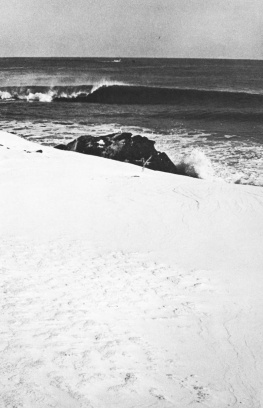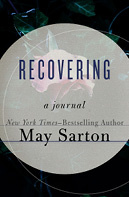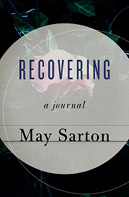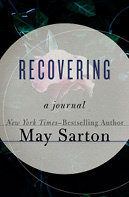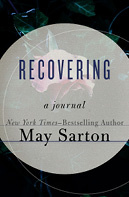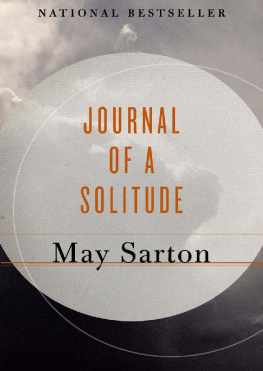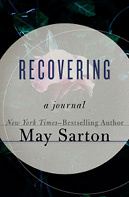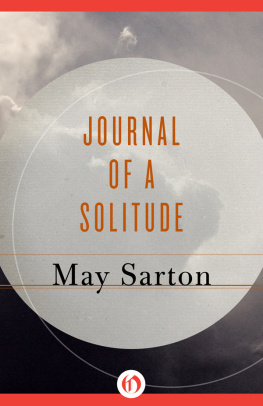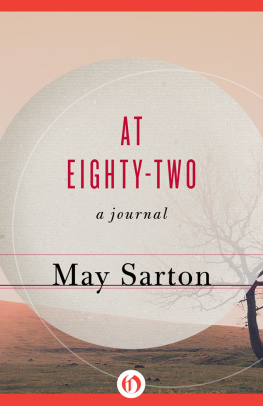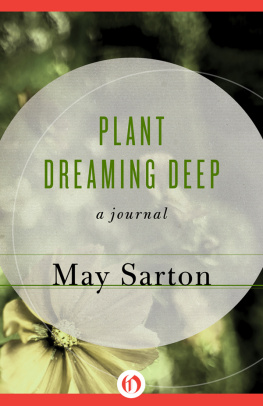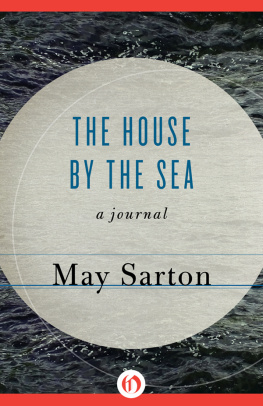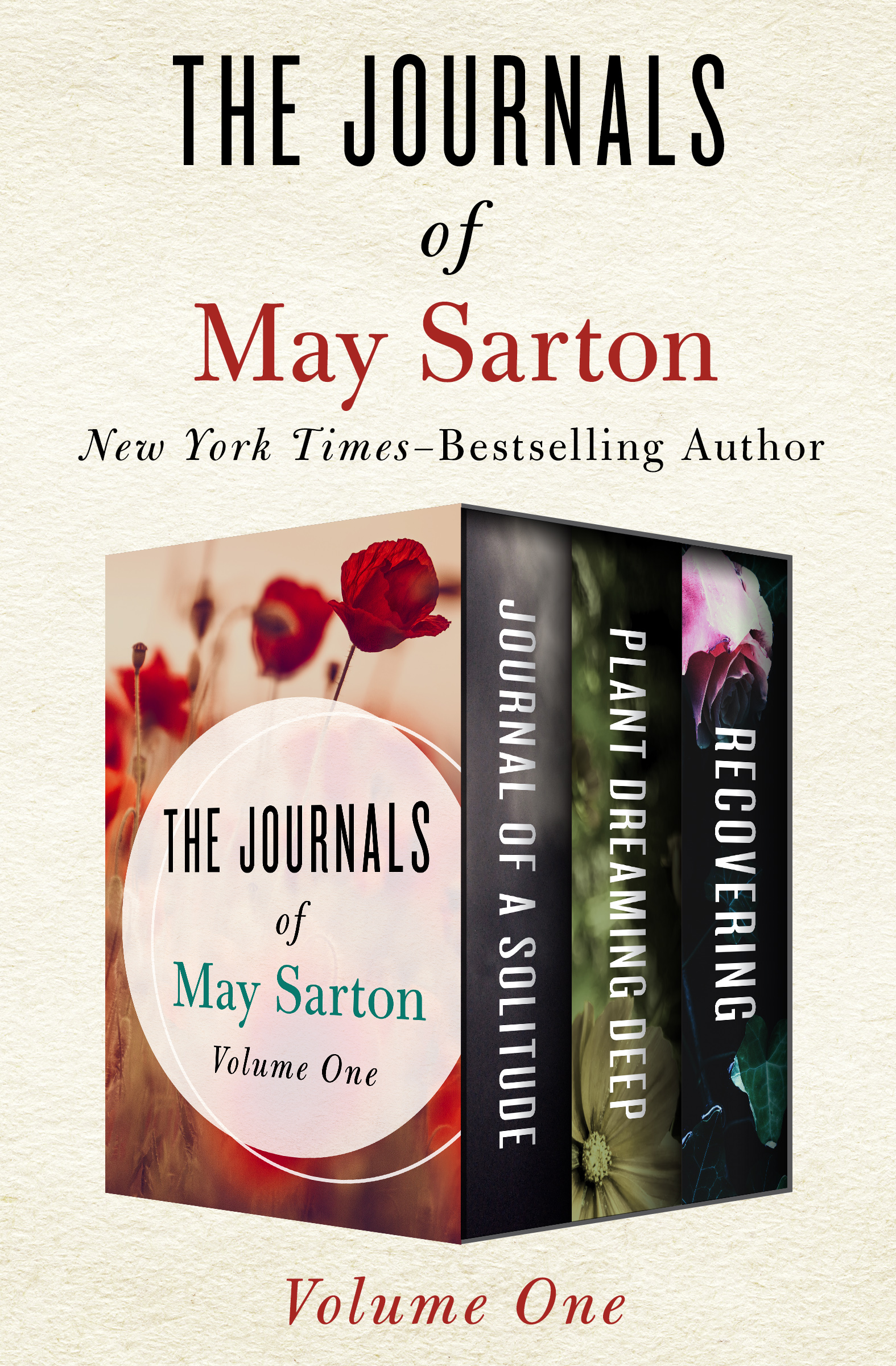The Journals of May Sarton Volume One
Journal of a Solitude, Plant Dreaming Deep, and Recovering
May Sarton

CONTENTS
About the Author
May Sarton (19121995) was born on May 3 in Wondelgem, Belgium, and grew up in Cambridge, Massachusetts. Her first volume of poetry, Encounters in April, was published in 1937 and her first novel, The Single Hound, in 1938. Her novels A Shower of Summer Days, The Birth of a Grandfather, and Faithful Are the Wounds, as well as her poetry collection In Time Like Air, all received nominations for the National Book Award.
An accomplished memoirist, Sarton came out as a lesbian in her 1965 book Mrs. Stevens Hears the Mermaids Singing. Her memoir Journal of a Solitude (1973) was an account of her experiences as a female artist. Sarton spent her later years in York, Maine, living and writing by the sea. In her memoir Endgame: A Journal of the Seventy-Ninth Year (1992), she shares her own personal thoughts on getting older. Her final poetrycollection, Coming into Eighty, was published in 1994. Sarton died on July 16, 1995, in York, Maine.
All rights reserved, including without limitation the right to reproduce this ebook or any portion thereof in any form or by any means, whether electronic or mechanical, now known or hereinafter invented, without the express written permission of the publisher.
Journal of a Solitude copyright 1973 by May Sarton
Plant Dreaming Deep copyright 1968 by May Sarton
Recovering copyright 1980 by May Sarton
Cover design by Amanda Shaffer
ISBN: 978-1-5040-4750-0
This edition published in 2017 by Open Road Integrated Media, Inc.
180 Maiden Lane
New York, NY 10038
www.openroadmedia.com

September 15th
B EGIN HERE. It is raining. I look out on the maple, where a few leaves have turned yellow, and listen to Punch, the parrot, talking to himself and to the rain ticking gently against the windows. I am here alone for the first time in weeks, to take up my real life again at last. That is what is strangethat friends, even passionate love, are not my real life unless there is time alone in which to explore and to discover what is happening or has happened. Without the interruptions, nourishing and maddening, this life would become arid. Yet I taste it fully only when I am alone here and the house and I resume old conversations.
On my desk, small pink roses. Strange how often the autumn roses look sad, fade quickly, frost-browned at the edges! But these are lovely, bright, singing pink. On the mantel, in the Japanese jar, two sprays of white lilies, recurved, maroon pollen on the stamens, and a branch of peony leaves turned a strange pinkish-brown. It is an elegant bouquet; shibui, the Japanese would call it. When I am alone the flowers are really seen; I can pay attention to them. They are felt as presences. Without them I would die. Why do I say that? Partly because they change before my eyes. They live and die in a few days; they keep me closely in touch with process, with growth, and also with dying. I am floated on their moments.
The ambience here is order and beauty. That is what frightens me when I am first alone again. I feel inadequate. I have made an open place, a place for meditation. What if I cannot find myself inside it?
I think of these pages as a way of doing that. For a long time now, every meeting with another human being has been a collision. I feel too much, sense too much, am exhausted by the reverberations after even the simplest conversation. But the deep collision is and has been with my unregenerate, tormenting, and tormented self. I have written every poem, every novel, for the same purposeto find out what I think, to know where I stand. I am unable to become what I see. I feel like an inadequate machine, a machine that breaks down at crucial moments, grinds to a dreadful halt, wont go, or, even worse, explodes in some innocent persons face.
Plant Dreaming Deep has brought me many friends of the work (and also, harder to respond to, people who think they have found in me an intimate friend). But I have begun to realize that, without my own intention, that book gives a false view. The anguish of my life hereits ragesis hardly mentioned. Now I hope to break through into the rough rocky depths, to the matrix itself. There is violence there and anger never resolved. I live alone, perhaps for no good reason, for the reason that I am an impossible creature, set apart by a temperament I have never learned to use as it could be used, thrown off by a word, a glance, a rainy day, or one drink too many. My need to be alone is balanced against my fear of what will happen when suddenly I enter the huge empty silence if I cannot find support there. I go up to Heaven and down to Hell in an hour, and keep alive only by imposing upon myself inexorable routines. I write too many letters and too few poems. It may be outwardly silent here but in the back of my mind is a clamor of human voices, too many needs, hopes, fears. I hardly ever sit still without being haunted by the undone and the unsent. I often feel exhausted, but it is not my work that tires (work is a rest); it is the effort of pushing away the lives and needs of others before I can come to the work with any freshness and zest.
September 17th
C RACKING OPEN the inner world again, writing even a couple of pages, threw me back into depression, not made easier by the weather, two gloomy days of darkness and rain. I was attacked by a storm of tears, those tears that appear to be related to frustration, to buried anger, and come upon me without warning. I woke yesterday so depressed that I did not get up till after eight.
I drove to Brattleboro to read poems at the new Unitarian church there in a state of dread and exhaustion. How to summon the vitality needed? I had made an arrangement of religious poems, going back to early books and forward into the new book not yet published. I suppose it went all rightat least it was not a disasterbut I felt (perhaps I am wrong) that the kind, intelligent people gathered in a big room looking out on pine trees did not really want to think about God, His absence (many of the poems speak of that) or His presence. Both are too frightening.
On the way back I stopped to see Perley Cole, my dear old friend, who is dying, separated from his wife, and has just been moved from a Dickensian nursing home into what seems like a far better one. He grows more transparent every day, a skeleton or nearly. Clasping his hand, I fear to break a bone. Yet the only real communication between us now (he is very deaf) is a handclasp. I want to lift him in my arms and hold him like a baby. He is dying a terribly lonely death. Each time I see him he says, It is rough or I did not think it would end like this.
Everywhere I look about this place I see his handiwork: the three small trees by a granite boulder that he pruned and trimmed so they pivot the whole meadow; the new shady border he dug out for me one of the last days he worked here; the pruned-out stone wall between my field and the church. The second field where he cut brush twice a year and cleared out to the stone wall is growing back to wilderness now. What is done here has to be done over and over and needs the dogged strength of a man like Perley. I could have never managed it alone. We cherished this piece of land together, and fought together to bring it to some semblance of order and beauty.

